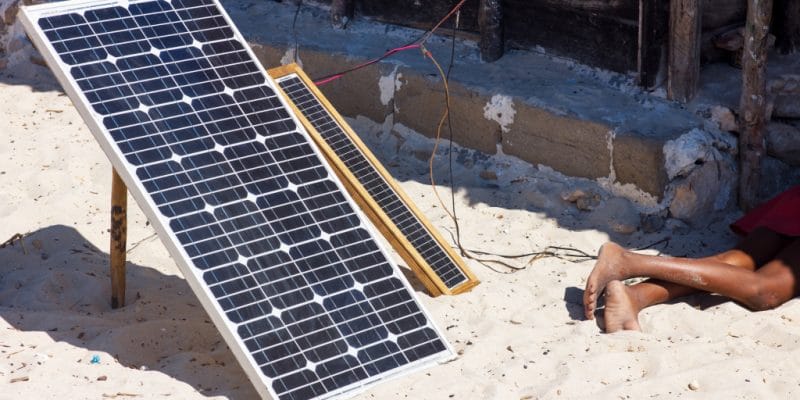The Business Council of Renewable Energies of Senegal (COPERES) has signed a partnership with the Alliance for Rural Electrification (ARE) to facilitate the electrification of rural areas in Senegal. Like other countries in sub-Saharan Africa, Senegal is relying on renewable energy to electrify its population.
In Senegal, a new partnership will support rural electrification. The agreement was recently signed between the Business Council of Renewable Energies of Senegal (COPERES) and the Alliance for Rural Electrification (ARE). The two organizations want to support the efforts of the Senegalese government in the field of electrification.
Currently, the West African country has an electricity access rate of 69%, 93% in urban areas and less than 50% in rural areas, according to Power Africa. The Senegalese government is therefore concentrating its efforts in remote areas. Like other sub-Saharan African countries, Senegalese authorities are relying on renewable energy providers to increase access to electricity in rural areas through decentralized solutions.
Building the capacity of the sector’s players
This is where the partnership between COPERES and AER comes in. This cooperation aims to develop the capacity of actors in the renewable energy sector, to create local jobs and to obtain more funding for projects and companies in Senegal. “This will be done, for example, by organizing ‘decentralized renewable energy investment academies’ or similar training for international Senegalese developers and other stakeholders, with the aim of attracting additional funding and technical support,” COPERES announces.
Read also- Africa bets on renewable energy for its electrification
Also, the two organizations pledge to work together on joint advocacy for renewable energy policies in Senegal to create a favourable market environment for sector players, “accompanying and contributing to the government’s efforts to achieve renewable energy targets,” the two organizations said in a joint statement.
Support for the Senegalese government’s electrification policy
Senegal has made considerable efforts in recent years to improve the business environment for renewable energy providers. In 2020, for example, Senegal’s Ministry of Petroleum and Energy exempted from VAT (value-added tax) equipment for the production of renewable energy such as solar, wind and biogas. This measure aims to accelerate the electrification of rural areas.
Read also- SENEGAL: Government exempts green energy equipment from VAT
In addition to advocating for electrification through decentralized renewable energy, COPERES and AER also intend to provide business development services to stakeholders working in Senegal to address the challenges of electrification, energy security and climate change. The two partners plan to conduct applied research to stimulate the market for renewable energy technologies.
Jean Marie Takouleu






